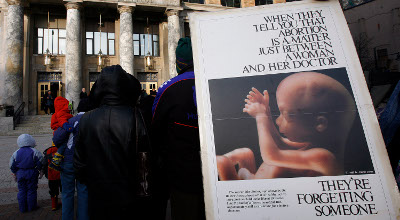‘180’ Film Turns Opinions Around Regarding Abortion
What would you do if …? Thus begins the question being asked by author and film producer Ray Comfort in his new documentary, 180. Titled to reflect the complete turnaround in the mindsets of all to whom the question is posed, the award-winning film shows eight pro-choice people (mostly college students) changing their stance to pro-life just moments after the question is asked in its entirety. It is Comfort’s hope that the documentary, releasing online Monday, will go viral.
While skeptics of 180 say they can’t believe anyone would change his or her mind so quickly, Comfort accepts and even understands their disbelief, stating that he could hardly believe it himself when he first viewed the footage in the editing room.
Initially, 180 was not the film he meant to produce. At the time, Comfort was taping interviews for a DVD to go along with a book on Hitler and the holocaust. In the course of the interviews, one question led to another, and the discussion led to abortion.
Comfort explains: “It began with two male university students completely changing their minds about abortion when we asked them this one question. We realized it wouldn’t be convincing to have only males speaking on the subject, so we took to the streets, asking that one particular question, and found that six women changed their minds from pro-abortion to pro-life in a matter of seconds. It was amazing!”
Comfort quickly recognized the film’s potential to open the doors of discussion. “I have held up pro-life signs. I have printed pro-life literature and spoken against abortion in pulpits and in my books, but I have felt that all my efforts were almost futile—that is, up until now. In 180 we have a nation-changer.”
Comfort adds: “Most of us know that we should be doing something to stop this horror, but the thought of protesting is a little unnerving, especially with the demonization of those who do so. But here is something each of us can easily do—we can give this DVD out. We can pass them out on the streets, leave copies on park benches or on seats in malls or give it to the checkout lady at the supermarket. This isn’t hard to do, and it will save lives—perhaps millions of lives.”














































